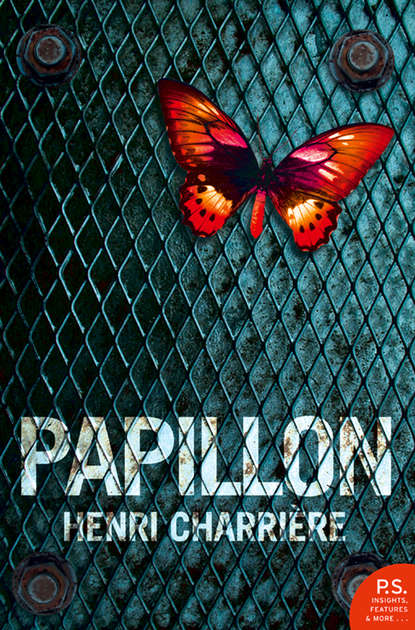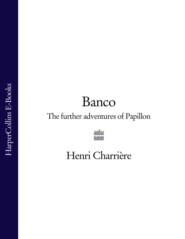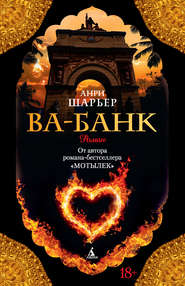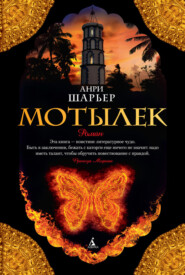По всем вопросам обращайтесь на: info@litportal.ru
(©) 2003-2025.
✖
Papillon
Настройки чтения
Размер шрифта
Высота строк
Поля
I said, ‘Fatgut, I’ll give you a present of a thousand francs between you.’
‘OK, then, brother. That sounds like a square deal to me. Thanks, because we starve to death there in the village. It’s worse being outside than in. If you’re in, at least you can fill your belly every day; and they find you in clothes.’
‘It doesn’t hurt you too much, mate?’ said Jesus to Clousiot.
‘It’s all right,’ said Clousiot. ‘But what are we going to do, Papillon, with my leg broken?’
‘We’ll see. Where we going, Jesus?’
‘I’m going to hide you in a creek twenty miles from the mouth of the river. There you can lie up for a week and let the worst of the warders’ and trackers’ hunt blow over. You must give them the idea you went right down the Maroni and out to sea this very night. The trackers go in boats with no motor, and they’re the most dangerous. If they’re on the watch, it can be fatal to you to talk or cough or have a fire. As for the screws, they’re in motor-boats that are too big to go up the creeks – they’d run aground.’
The darkness was lessening. For a long time we searched for a landmark known only to Jesus, and it was almost four o’clock before we found it: then we literally went right into the bush. The boat flattened the small undergrowth, which straightened up again behind us, making a very thick protective curtain. You had to be a wizard to know whether there was enough water to float a boat. We went in, pushing aside the branches that barred our passage and thrusting into the bush for more than an hour. All at once we were there, in a kind of canal, and we stopped. There was clean grass on the bank; and now, at six o’clock, the light did not penetrate the leaves of the huge trees. Beneath this impressive roof there were the sounds of hundreds of creatures quite unknown to us. Jesus said, ‘Here is where you have to wait for a week. I’ll come on the seventh day and bring you food.’ From under the thick vegetation he pulled a very small canoe, about six feet long. Two paddles in it. This was the craft he was going back to Saint-Laurent in, on the flood-tide.
Now we took care of Clousiot, who was lying there on the bank. He was still in his shirt, so his legs were bare. We trimmed dry branches with the axe, making splints of them. Fatgut heaved on his foot; Clousiot sweated hard and then at a given moment he cried, ‘Stop! It hurts less in this position, so the bone must be in its right place.’ We put on the splints and tied them with new hemp cord from the boat. His pain was eased. Jesus had bought four pairs of trousers, four shirts and four relégués’ woollen lumber-jackets. Maturette and Clousiot put them on: I stayed in the Arab’s clothes. We had a tot of rum. This was the second bottle since we left – it warmed us, which was a good thing. The mosquitoes did not give us a moment’s peace: we had to sacrifice a packet of tobacco. We put it to soak in a calabash and smeared the nicotine-juice over our faces, hands and feet. The woollen jackets were splendid; they kept us warm in spite of this penetrating damp.
Fatgut said, ‘We’re off. What about this thousand francs you promised?’ I went behind a bush and came back with a brand-new thousand note.
‘Be seeing you. Don’t stir from here for eight days,’ said Jesus. ‘We’ll come on the seventh. The eighth you can get out to sea. Meanwhile make the mainsail and jib; put the boat to rights, everything in its place. Fix the pintle – the rudder’s not shipped. If we don’t come within ten days, it means we’ve been arrested in the village. As there was an attack on a warder, which adds some spice to the break, there will surely be the most God-almighty bleeding rampage about it all.’
Clousiot had told us he didn’t leave the rifle at the bottom of the wall. He had flung it over, and the water was so close (which he hadn’t known) that it must certainly have gone into the river. Jesus said that was fine, because if it was not found the trackers were going to think we were armed. And since they were the really dangerous ones, we should therefore have nothing to be afraid of. Because they only had a revolver and a jungle-knife and if they thought we had rifles, they would never risk it.
Good-bye. Good-bye. If we were found and we had to leave the boat, we should go up the little stream as far as the dry bush and then steer by compass, always keeping north. In two or three days’ march we were likely to come across the death-camp called Charvin. There we should have to pay someone to tell Jesus we were in such and such a place. The two old lags pushed off. A few moments later their canoe had vanished: we neither heard nor saw anything more at all.
Daylight comes into the bush in a very special way. You would think you were in an arcade whose top caught the sun and never let a single ray make its way down to the bottom. It began to grow hot. And now here we were, Maturette, Clousiot and me, quite alone. Our first reaction was to laugh – the whole thing had run on oiled wheels. The only hitch was Clousiot’s broken leg, though he said himself that now it was held between flat pieces of wood, it was all right. We could brew the coffee straight away. This we did very quickly, making a fire and drinking a great mug of black coffee apiece, sweetened with brown sugar. It was marvellous. We had used ourselves up so much since the evening before that we hadn’t the energy to look at the things or to inspect the boat. We’d see to all that later. We were free, free, free. Exactly thirty-seven days had passed since I reached Guiana. If we brought this break off, my lifer wouldn’t have been a very long one. I said aloud, ‘Monsieur le President, how many years does penal servitude for life last in France?’ and I burst out laughing. So did Maturette – he had a lifer too. Clousiot said, ‘don’t crow too soon. Colombia’s a long way off, and this hollowed-out tree-trunk doesn’t seem to me much of a thing to go to sea in.’
I did not reply, because to tell the truth until the last moment I had thought it was just the canoe meant to take us to the real boat, the boat for the sea voyage. When I found I was wrong, I did not like to say anything, so as not to discourage my friends in the first place, and in the second not to give Jesus the idea that I didn’t know what kind of boats were usually used for a break – he seemed to think it perfectly natural.
We spent the first day talking and getting to know a little about the bush – it was completely strange to us. Monkeys and squirrels of some kind flung themselves about overhead in the most astonishing way. A herd of peccaries came down to drink: they are a kind of small wild pig. There were at least two thousand of them. They plunged into the creek and swam about, tearing off the hanging roots. An alligator emerged from God knows where and caught one pig by the foot: it started to shriek and squeal like a steam-engine, and all the others rushed at the alligator, clambering on to it and trying to bite the corners of its enormous mouth. At every blow of the alligator’s tail a pig flew into the air, one to the left, the next to the right. One pig was stunned and it floated there, belly up. Instantly its companions ate it. The creek was red with blood. This scene lasted twenty minutes and then the alligator escaped into the water. We never saw it again.
We slept well, and in the morning we made our coffee. I took off my jacket so as to wash with a big bar of common soap we found in the boat. Using my scalpel, Maturette shaved me, more or less, and then he shaved Clousiot. He himself had no beard. When I picked up my jacket to put it on again, a huge, hairy, blackish-purple spider fell out. Its hairs were very long and each ended in a little shining ball. The monstrous thing must have weighed at least a pound: I squashed it, feeling disgusted. We took everything out of the boat, including the little water-barrel. The water was violet, and it seemed to me Jesus had put in too much permanganate to make it keep. There were well-corked bottles with matches and strikers. The compass was only a schoolboy’s job – it just gave north, south, east and west: no graduations. The mast was no more than eight feet long, so we sewed the flour-sacks into a lug-sail with a border of rope to strengthen it. And I made a little triangular jib to help make the boat lie close.
When we stepped the mast I found the boat’s bottom was not sound: the slot for the mast was eaten away and badly worn. When I put in the spikes for the hinges that were to hold the rudder, they went in as if the hull were butter. The boat was rotten. That sod Jesus was sending us to our death. Very unwittingly I explained all this to the others: I had no right to hide it from them. What were we going to do about it? Make Jesus find us a sounder boat when he came, that’s what. We’d take his weapons from him, and carrying a knife and the axe I’d go to the village with him and look for another boat. It was a great risk to take; but not so great as putting to sea in a coffin. The stores were all right: there was a wicker-covered bottle of oil and some tins full of manioc flour. We could go a long way on that.
That morning we saw a wonderfully strange sight: a troop of grey-faced monkeys had a battle with monkeys whose faces were black and woolly. During the struggle Maturette came in for a piece of wood on the head that gave him a lump the size of a walnut.
Now we had been there five days and four nights. Last night rain fell in torrents. We sheltered ourselves under wild banana leaves. Their shiny sides poured with water, but we were not wetted at all, only our feet. This morning, as we drank our coffee, I thought about Jesus’s wickedness. Taking advantage of our lack of experience to palm off this rotting boat on us! Just to save five hundred or a thousand francs he was sending three men to certain death. I wondered whether I shouldn’t kill him once I had forced him to get us another boat.
Suddenly we were startled by a noise like jays, a shrieking so harsh and unpleasant that I told Maturette to take the jungle-knife and go and see what was up. Five minutes later he came back, beckoning. I followed him and we reached a spot about a hundred and fifty yards from the boat: hanging there I saw a great pheasant or wild-fowl, twice the size of a cock. It was caught in a noose and it was hanging by its foot from a branch. With one blow of the jungle-knife I took off its head, to stop its ghastly shrieks. I felt its weight: it must have been at least ten pounds. It had spurs like a cock. We decided to eat it, but while we were thinking it over, it occurred to us that somebody must have set that snare and that there might be others. We went to have a look. When we were back there we found something very odd – a positive fence or wall about a foot high, made of woven leaves and creepers, some ten yards from the creek. This barrier ran parallel with the water. Every now and then there was a gap, and in this gap, hidden by twigs, the end of a noose of brass wire fixed to a bent-over whippy branch. I saw at once that the creature must come up against this hedge and then go along it, trying to get past. On finding the gap, it would pass through, but its feet would catch in the wire and spring the branch. Then there it would be, hanging in the air until the owner of the snares came to take it.
This discovery worried us badly. The hedge seemed to be well kept, so it wasn’t old: and we were in danger of being found. We mustn’t light a fire in the daytime: but at night the hunter wouldn’t come. We decided to take it in turns to keep watch in the direction of the traps. We hid the boat under branches and all the stores in the bush.
The next day at ten o’clock I was on guard. For supper we had eaten that pheasant or cock or whatever it was. The soup had done us an enormous amount of good, and although the meat was only boiled it was still delicious. We had each eaten two bowls full. So I was on guard: but I was so taken up with the goings-on of the huge black manioc ants, each carrying a piece of leaf to the enormous ant-hill, that I forgot to keep watch. These ants were close on an inch long and they stood high on their legs. Each one was carrying this enormous piece of leaf. I followed them to the plant they were stripping and I discovered the whole thing was thoroughly organized. First there were the cutters, who did nothing but get the pieces ready: they were working away on a gigantic leaf something like the ones on a banana palm, very skilfully and very quickly cutting off pieces all the same size, which they dropped to the ground. Down below there were ants of the same sort but slightly different. These ones had a grey stripe on the side of their jaws: and they stood in a half circle, supervising the carriers. The carriers came filing in from the right and they went off towards the left in the direction of the ant-hill. They snatched up their loads before getting into line, but sometimes, what with their hurry in trying to load and to get into position, there was a jam. Then the police-ants would step in and shove the workers into their proper places. I couldn’t understand the crime one worker had committed, but she was brought out of the ranks and one police-ant bit off her head while another divided her body in two in the middle. The police-ants stopped two workers; they put down their loads, scratched a hole, buried the three parts of the ant – head, chest, bottom piece-and covered them over with earth.
Pigeon Island
I was so taken up with watching these creatures and following the soldiers to see whether their policing went as far as the entrance to the ant-hill, that I was taken utterly by surprise when a voice said, ‘Don’t move or you’re a dead man. Turn round.’
It was a man bare from the waist up, wearing khaki shorts and long red leather boots. He had a double-barrelled gun in his hands. Medium-sized and thickset: sunburnt. He was bald and his eyes and nose were covered with a bright blue tattooed mask. And in the middle of his forehead there was a tattooed black-beetle.
‘You armed?’
‘No.’
‘Alone?’
‘No.’
‘How many of you are there?’
‘Three.’
‘Take me to your friends.’
‘I wouldn’t like to do that: one has a rifle, and I wouldn’t like to get you killed before I know what you mean to do.’
‘Ah? Don’t you move an inch, then; and just you talk quiet. You’re the three guys that escaped from the hospital?’
‘Yes.’
‘Which is Papillon?’
‘That’s me.’
‘Well then, I can tell you you’ve stirred things up good and proper in the village, with your escape! Half the time-expired men are under arrest at the gendarmerie.’ He came towards me, and lowering his gun he stretched out his hand. ‘I’m the Masked Breton,’ he said. ‘You’ve heard of me?’
‘No, but I can see you’re not a tracker.’
‘You’re right there. I set traps round about here to catch hoccos. A jaguar must have eaten one for me, unless it was you guys.’
‘It was us.’
‘You want some coffee?’ He had a thermos in a knapsack: he gave me a little and drank some himself. I said, ‘Come and see my friends.’ He came and sat down with us. He was amused at my having pulled the rifle trick with him. He said, ‘I fell for it, particularly as everyone knows you left carrying a gun, and there’s no tracker who’ll go after you.’
He told us he had been in Guiana twenty years and that he’d been free these last five. He was forty-five. Because of the silly caper of having had that mask tattooed on his face, life in France didn’t mean anything to him. He worshipped the bush and lived off it entirely – snakes’ and jaguars’ skins, butterfly collections, and above all catching live hoccos, the bird we’d eaten. He could sell them for two hundred or two hundred and fifty francs. I suggested paying for it, but he refused indignantly. This is what he told us: ‘The bird is a sort of wild bush cock. Of course, it’s never so much as seen an ordinary hen or a cock or a human being. Well, I catch one, I take it to the village and I sell it to someone who has a hen-run – they’re always in demand. Right. You don’t have to clip his wings, you don’t have to do anything at all: at nightfall you put him into the henhouse and when you open the door in the morning there he is, standing by, looking like he was counting the cocks and hens as they come out. He comes out after them, and although he eats alongside of them, all the time he’s watching – he looks up, he looks sideways and he looks into the bushes all round. There’s no watchdog to touch him. In the evening he stands there at the door and although no one can tell how, he knows if there’s a hen or two missing, and he goes and finds them. And whether it’s a cock or whether it’s a hen, he drives them in, pecking them like mad to teach them to keep an eye on the clock. He kills rats, snakes, shrews, spiders and centipedes; and a bird of prey has hardly appeared in the sky before he sends everyone off to hide in the grass while he stands there defying it. He never quits the hen-run for a moment.’ And this was the wonderful bird we had eaten like any common barnyard cock.
The Masked Breton told us that Jesus, Fatgut and some thirty other freed men were in prison in the Saint-Laurent gendarmerie, being investigated to see whether any of them could be recognized as having been seen prowling about the building we escaped from. The Arab was in the black-hole of the gendarmerie. He was in solitary, accused of having helped us. The two blows that knocked him out had left no mark, whereas each of the screws had a little lump on the head. ‘For my part, I wasn’t interfered with at all, because everybody knows I never have anything to do with preparing a break.’ He told us Jesus was a sod. When I spoke to him about the boat he asked to see it. He’d scarcely caught sight of it before he cried, ‘But the bastard was sending you to your death! This canoe could never live for an hour in the sea. The first wave of any size, and it’d split in two as it came down. Don’t go off in that thing – it’d be suicide.’
‘What can we do, then?’
‘Got any money?’
‘Yes.’
‘Then I’ll tell you what to do: and what’s more, I’ll help you. You deserve it. You mustn’t go anywhere near the village – not at any price. To get hold of a decent boat you have to go to Pigeon Island. There are about two hundred lepers there. There’s no warder, and no healthy man ever goes, not even the doctor. At eight o’clock every day a boat takes food for twenty-four hours: uncooked food. A hospital orderly hands over a case of medicine to the two attendants, lepers themselves, who look after the patients. No one sets foot on the island, whether he’s warder, tracker or priest. The lepers live in little straw huts they make themselves. They have a central building where they meet. They raise hens and ducks, and that helps them out with their rations. Officially they aren’t allowed to sell anything off the island, so they have an illicit trade with Saint-Laurent, Saint-Jean and the Chinese of Albina in Dutch Guiana. They’re all dangerous murderers. They don’t often kill one another but they do a fair amount of villainy when they get out of the island on the quiet – they go back and hide there when it’s over. They have some boats stolen from the nearby village for these excursions. Possessing a boat is the worst crime they can commit. The warders fire on any canoe that comes or goes from Pigeon Island. So the lepers sink their boats, filling them with stones: when they need one they dive down, take out the stones, and the boat comes up. There are all kinds on the island, every colour and nation and from every part of France. What it comes to is this – your canoe is only any use to you on the Maroni, and without much in it, at that. To get out to sea, you’ve got to find another boat, and the best place for that is Pigeon Island.’
‘How are we to set about it?’
‘This is how. I’ll come with you up the river until we’re in sight of the island. You wouldn’t find it, or at any rate you might go wrong. It’s about a hundred miles from the mouth, so you have to go upstream again. It’s about thirty miles from Saint-Laurent. I’ll guide you in as close as I can and then I’ll get into my canoe – we’ll tow it behind. Then, once on the island, it’s all up to you.’








